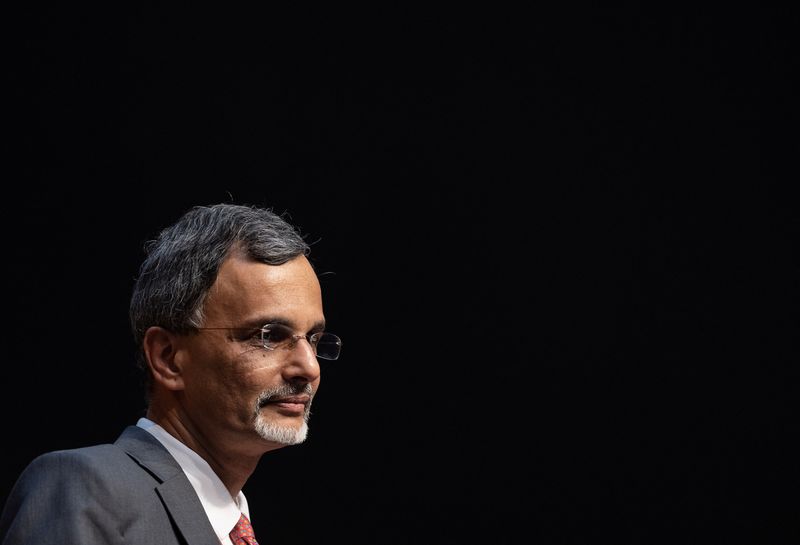NEW DELHI (Reuters) - The Indian government's chief economic advisor called in a paper published on Thursday for reforms to the way credit ratings agencies assign sovereign ratings, saying their present methodologies are biased towards advanced economies.
V Anantha Nageswaran argued in the paper - co-authored by Rajiv Mishra, also a senior government adviser - that rating agencies should share their methodology so countries can take appropriate action to improve their credit ratings.
"... Any improvement in macro-economic parameters may virtually mean nothing for a credit rating if qualitative parameters are judged to be in need of improvement," it said.
Nageswaran and Mishra said ambiguity about the methodology used to assess creditworthiness by ratings agencies such as Fitch Ratings, Moody's (NYSE:MCO) and S&P Global Ratings risked "sowing suspicion about ... discriminatory intent". They said developing countries have seen over 95% of all downgrades despite experiencing milder economic contractions than their advanced economy counterparts.
India's ratings have remained constant at BBB- for 15 years, the paper said, even though its economy has grown in that time to become the world's fifth-largest from 12th place in 2008.
A Fitch Ratings spokesperson said rating decisions are based on independent, robust, transparent and timely analysis.
"All Fitch's sovereign rating decisions are taken solely in accordance with one globally consistent and publicly available rating criteria, with rating drivers and sensitivities clearly identified in our ongoing public rating commentary," the spokesperson said in emailed comments.
An S&P Global Ratings spokesperson declined to comment, while Moody's did not respond to an email seeking comments.
Lower ratings make it difficult for developing countries to access cheaper long-term funding from international markets, the paper said.
CARBON TAX
In a different paper shared by the economic adviser's office, Nageswaran wrote that unilateral measures by developed countries such as cross-border carbon taxes and initiatives to impose strict data reporting requirements would hurt the competitiveness and hinder the growth of developing nations.

The European Union in April announced a plan to impose a levy called the Carbon Border Adjustment Mechanism (CBAM) on high-carbon goods imports from 2026, targeting imports of steel, cement, aluminum, fertilisers, electricity, and hydrogen. Britain also held consultations earlier this year with domestic stakeholders on a potential carbon border tax.
Nageswaran said developed countries should engage with their developing counterparts in innovation, research and development and use their resources - like the revenues earned from CBAM - to help them access climate technologies.